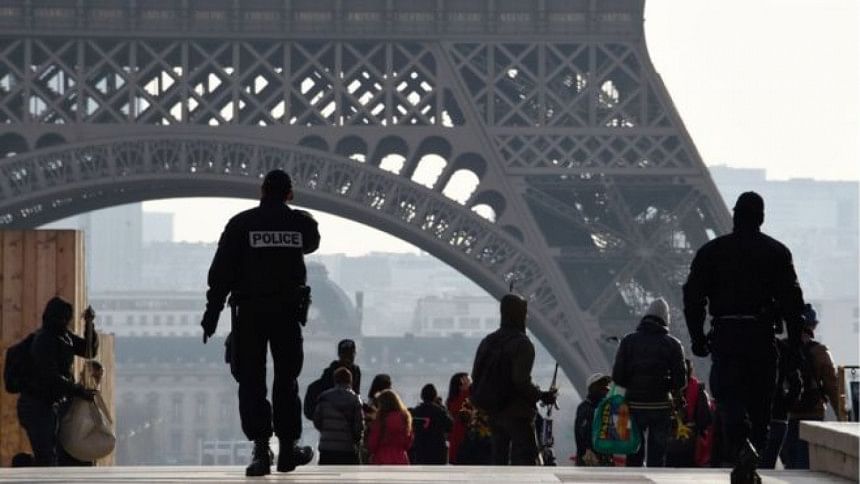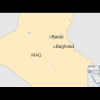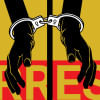French emergency ‘until IS defeated’

France will seek to keep its state of emergency until a "total and global war" against so-called Islamic State (IS) is over, Prime Minister Manuel Valls has told the BBC.
The measures were introduced after the IS-led Paris attacks on 13 November and then extended for three months.
Such a move gives police more power to conduct raids and impose house arrests.
Valls also warned that Europe's migration crisis was now putting the European Union itself at grave risk.
German Chancellor Angela Merkel is due to hold talks with Turkish Prime Minister Ahmet Davutoglu in Berlin.
EU countries hope Turkey will help to control the flow of migrants reaching the EU from Syria and other conflict zones.
Interviewed by the BBC's chief international correspondent, Lyse Doucet, at the World Economic Forum in Davos, Switzerland, Valls said France was "at war", which meant "using all means in our democracy under the rule of law to protect French people".
When asked how long he envisaged the state of emergency remaining, Valls said: "The time necessary. We cannot always live all the time in a state of emergency."
"As long as the threat is there, we must use all the means," he said, adding that it should stay in place "until we can get rid of Daesh", using an acronym for IS.
"In Africa, in the Middle East, in Asia we must eradicate, eliminate Daesh," he said. "It is a total and global war that we are facing with terrorism," he added. "The war we are conducting must also be total, global and ruthless."
'TOTALLY DESTABILISED'
More than a million migrants, most of them refugees, arrived in Europe last year.
Valls sais that Europe could not take in all the refugees fleeing what he called terrible wars in Iraq or Syria.
"Otherwise," he said, "our societies will be totally destabilised."
Europe, he said, needs to take urgent action to control its external borders.
"If Europe is not capable of protecting its own borders, it's the very idea of Europe that will be questioned."
Asked about border controls inside Europe which many fear put the passport-free Schengen zone at great risk, Valls said the concept of Europe itself was now in very grave danger.
He did not directly criticise Germany's Chancellor Angela Merkel for her welcoming message last year to refugees.
Valls said she "had courage", but it was clear he believed her message was wrong, our correspondent says.
"A message that says 'Come, you will be welcome' provokes major shifts" in population, says Valls.
"Today, when we speak in Europe, a few seconds later it is mainly on the smartphones in the refugee camps."
EXTENSION OF MEASURES
Attackers linked to IS killed 130 people in co-ordinated assaults across Paris in November, leading to the first declaration of a state of emergency in France in 10 years.
The measures expire on 26 February.
This week, a group of UN human rights experts said they were "excessive and disproportionate".
France's government said on Wednesday that a decision on whether it would be extended beyond then would be announced "in the coming days".
President Francois Hollande is eager to enshrine the emergency measures under the constitution, a move that would see dual nationals stripped of their French nationality if found guilty of terrorist offences.
The group of UN experts this week expressed their concern that environmental activists had been kept under house arrest under the measures, which they said "do not seem to adjust to the fundamental principles of necessity and proportionality".
On Wednesday, France's leading human rights organisation called (in French) for the state of emergency to be suspended, calling it "a short-term measure only", adding that it was "highly intrusive towards personal freedoms".
"I think that we have perfectly adapted the means to the threat," Valls told the BBC, responding to criticism of the measures. "This type of analysis always surprises me. Do you realise we have had 130 dead?"
Valls said France "could see attacks again", adding that six plots had been foiled over the past few months.

 For all latest news, follow The Daily Star's Google News channel.
For all latest news, follow The Daily Star's Google News channel. 








Comments